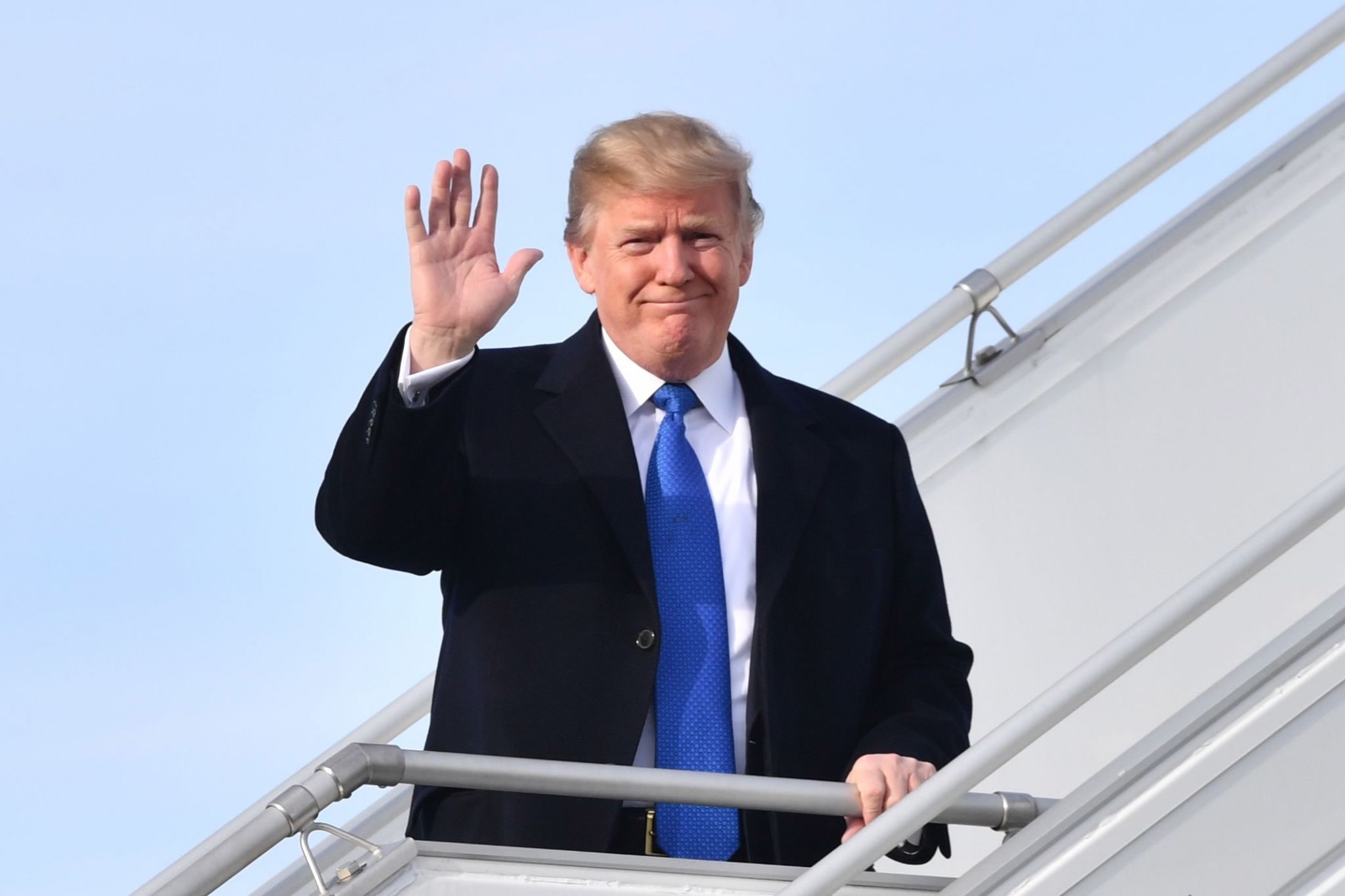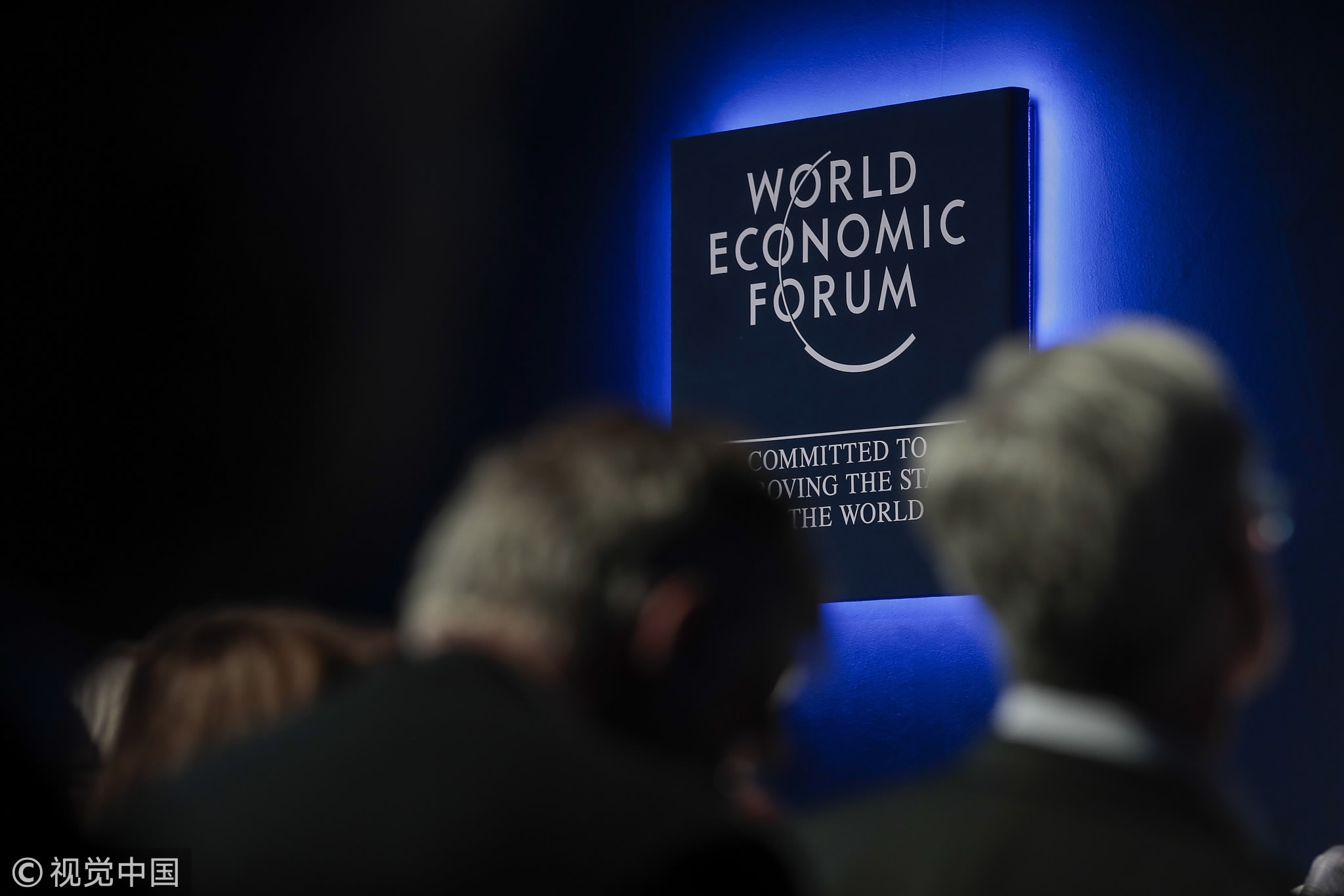
Opinions
22:12, 25-Jan-2018
Opinion: WEF 2018: Globalization first, please!
Guest commentary by Rityusha Mani Tiwary

While the world's fastest developing economies have reiterated their support for expanding forces of globalization and opposed all forms of protectionism, the "America First" agenda of the US has derailed their plans and economic policies aimed at transitioning from rapid growth to quality expansion.
US President Donald Trump’s decision to withdraw the United States from a Pacific Rim trade pact and open other trade deals for re-negotiation is symptomatic of this protectionism.

US President Donald Trump arrives in Zurich en route to the World Economic Forum in Davos, January 25, 2018. /VCG Photo
US President Donald Trump arrives in Zurich en route to the World Economic Forum in Davos, January 25, 2018. /VCG Photo
Though the US is yet to impose any of the broad tariffs that Trump has repeatedly argued are necessary to protect US companies’ interests in the global economy, 2018 will be crucial in terms of actual praxis by the US.
A series of unusual trade cases that were initiated last year brought under attention little-used provisions of trade laws, indicating a likelihood of imposing sweeping tariffs or quotas on foreign products by the US.

An illuminated World Economic Forum (WEF) sign is seen on the wall during a panel session on day three in Davos, Switzerland, January 25, 2018. /VCG Photo
An illuminated World Economic Forum (WEF) sign is seen on the wall during a panel session on day three in Davos, Switzerland, January 25, 2018. /VCG Photo
At the same time, the negative sides of globalization, including the crisis in 2008, have not been effectively countered. These include the risks in financial markets, asset bubbles, spillovers of monetary policies of the world’s major economies, high debt and equity and commodity markets. In fact these risks have been augmented by shadow banking and local governments' hidden debt.
Developing economies also face challenges on the front of pollution control and the intensity of resource consumption.
In the last two years, several regions in Africa, Latin America and Western Asia experienced sharp declines in per capita income levels. Home to 275 million people living in extreme poverty, these regions are in an urgent need of accelerated medium-term growth prospects and effective policies to tackle inequalities in income and opportunity.
Many of the medium-growth developing economies are riddled with institutional deficiencies, inadequate basic infrastructure, high susceptibility to natural disasters, as well as political instability and security concerns. These uncertainties and risks slow down the pace of many sustainable development targets.

Banners read "They are so dangerous", "Global warming with fire and fury" and "They have to be fenced off" hang from the balconies of a house near the venue of the annual World Economic Forum (WEF) in Davos, Switzerland, January 25, 2018. /VCG Photo
Banners read "They are so dangerous", "Global warming with fire and fury" and "They have to be fenced off" hang from the balconies of a house near the venue of the annual World Economic Forum (WEF) in Davos, Switzerland, January 25, 2018. /VCG Photo
Faced with such challenges, it is imperative that the global economic growth story is not misread in favor of the few and to the disadvantage of the major chunk of the world population. Globalization, after all, cannot be an excuse for widening gaps in income and opportunity for the worse off, as the spirit behind the free flow of ideas and material worldwide is the progressive transformation of world civilizations.
While the World Economic Forum 2018 recognizes the challenges confronting the global economic environment, the emphasis on the "collective inability to secure inclusive growth" and "new models for cooperation that are not based on narrow interests but on the destiny of humanity as a whole" is not very conclusive as the road map is not clear either.
A restructuring of the global economic regimes is the first step in that direction if the fastest developing economies are expected to provide the boost to world economies. Whether the appeal by Klaus Schwab is inclusive of these demands by India and China is a question that awaits responses by major economies, especially the US.
(The author teaches political science at the University of Delhi, India. The article reflects the author's opinion, and not necessarily the view of CGTN.)

SITEMAP
Copyright © 2018 CGTN. Beijing ICP prepared NO.16065310-3
Copyright © 2018 CGTN. Beijing ICP prepared NO.16065310-3